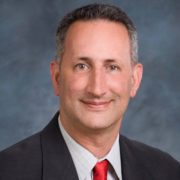QUESTION: I know that Trump issued a second executive order. What is happening with this one?
Answer: The District Judge in Hawaii has ruled in favor of the plaintiffs. In other words, that judge has ruled that the brief Temporary Restraining Order is now converted to a Preliminary Injunction, and therefore, is both nationwide and issued for a much longer period than would have been the time span of the temporary injunction.
Q: Why did the judge rule against Trump?
A: There were several reasons as to why the judge ruled against the president:
1) The judge basically said that this is a watered down version of the first executive order and that just taking out some language, which was blatantly inflammatory and unconstitutional in the second executive order does not change the basis for the executive order itself. Essentially, Trump said many times on the campaign trail how he was going to ban Muslims from entering the United States. He stated many derogatory statements against Muslims and essentially attacked a Gold Star family whose Muslim son died defending the U.S. The judge stated he was not going to close the shutters, turn out the lights and go hide in a corner as though those statements and actions were never taken. Thus, the judge ruled that the words in the executive order cannot simply be taken at their face value and that he needed to look at Trump’s past statements to see the real intent behind the executive order. Since the real intent is the ‘Muslim ban’ and not the watered down words of the executive order, the preliminary injunction was issued.
2) It was a violation of the Establishment Clause of the United States Constitution. This particular clause is in the First Amendment to the U.S. Constitution and it prevents the government from either endorsing a religion or prohibiting the practice of a religion. Thus, in the first executive order, Trump has specifically stated that anyone coming into the U.S. claiming ‘Christian persecution’ would be given priority. This was clearly a violation of the Establishment Clause as it gave preference by the government to one religion over another. In the second executive order, the Court basically said that this ‘Muslim ban’ is really meant for a prohibition of one particular type of people who practice a certain religion from entering the U.S. Thus, it violated the Establishment Clause on the other side of the spectrum by the government essentially prohibiting practice of a religion in the U.S.
Q: Why is the Establishment Clause so important?
A: It is critical to our democracy that there is a separation of Church and state. Thus, the government must both stay out of religion as well as anything that promotes religion. Otherwise, you start having a government that starts making decisions based upon religion and not law. The government starts giving preference to one religious sect over another. The government essentially starts discriminating. This is why the founding fathers put the Establishment Clause in the First Amendment of the U.S. Constitution.
* * *
Atty. Brian D. Lerner has been an Immigration Attorney for nearly a quarter of a century. He is married to a Filipina and has helped thousands of Filipino families all over the country. In addition to his offices in Southern California in Long Beach and Carson, he has an office in Quezon City. He is a certified specialist in Immigration and Nationality Law by the Legal Board of Specialization, California State Bar. The initial consultation is free. Call (562) 495-0554 and/or send an e-mail to blerner@californiaimmigration.us.






